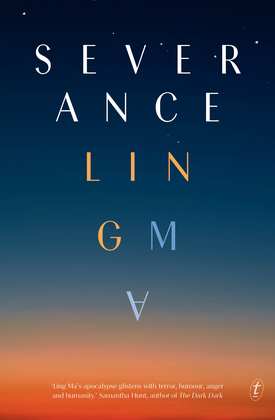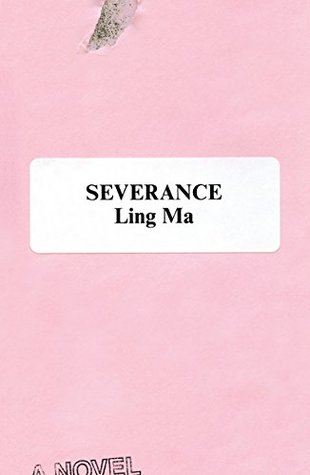

The post-apocalyptic dystopia is obvious, the immigrant story, less. Fashioning humans into robots puts a completely new plot twist on the narrative of automatocracy. American capitalism has manufactured a hierarchical pyramid of products on which humans are perched on the top in their panoramic glass-windowed view.


The contexts of employees receiving irrefutable bonuses to perform work they don’t believe in, siphoned Bible production for cheap labor, and intractable corporate interests hacking at what remains of humanity until the world is at its whittling end, offer the grounds for satire at its damn best (with a Kirkus Prize to prove it). Candace, like the factory, goes on in her slavish, self-martyrdom way - as if she and the factory are competing with one another - the economic residue of the pandemic. She liaises with overseas Chinese factories - rumored to be the source of the microspores of Shen Fever - who print and source their Bibles.

In this milieu, Candace continues her regimented routine in a publishing company. This is what is left of New York City after the Shen Fever sweeps across the city and chases away any remaining survivors. Lonely, deserted, roaming with what seems like apparitions of a once gleaming city of a bustling and vibrant economy. In “Severance”, the world is spinning into a deadpan chaos. Ma gives us a migrant’s tale wrapped up in a dystopia of death by remembering, a critique of American capitalism that is told from the perspective of Candace Chen, a female protagonist who is a 1.5 generation Chinese American. Almost like a reverse-engineering of “The Giver”, a utopia formed by the withholding of memory and feeling. It is a death from within, layered with themes of belonging and separation. Ma’s dystopia is not so nihilistic, but is sobering. Dystopian novels often give profound insight on a death from without - tyranny and totalitarianism birthed by patriarchy in “The Handmaid’s Tale”, pyromania in “Fahrenheit 451”, or technocracy in “Brave New World”. Yet dystopia has also never seemed quite so tenderly introspective. And it’s true there is already too much death around us. I’ve heard from way too many people that after the election, they’ve foregone reading dystopian novels because it is just too real. It might be because dystopias can be too grim or too cynical.


 0 kommentar(er)
0 kommentar(er)
